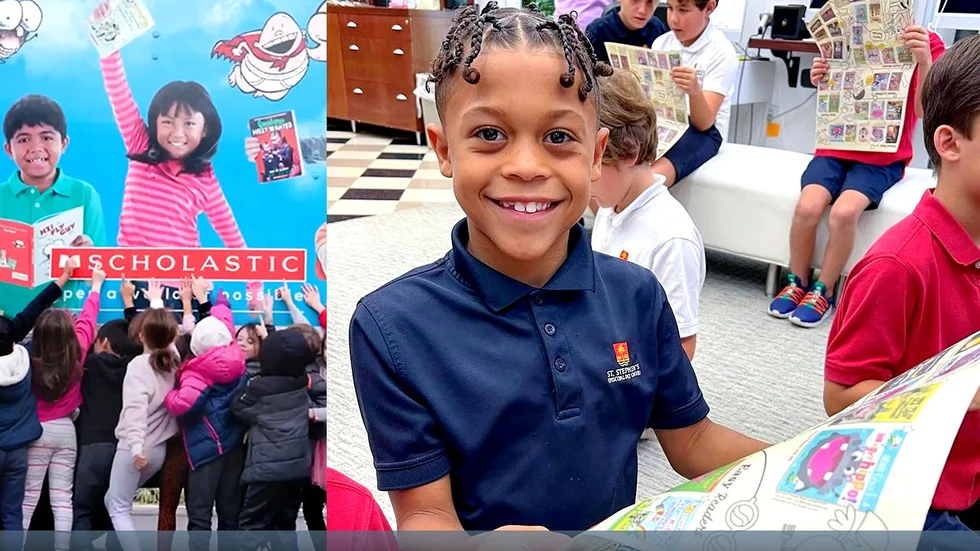Scholastic, the world’s largest publisher and distributor of children’s books, has made some changes to its book fairs, a beloved elementary and middle school institution, in light of some schools’ restrictions on material dealing with LGBTQ+ and racial issues.
For its elementary school fairs, it has placed these books in a separate collection called “Share Every Story, Celebrate Every Voice,” and school officials can decide whether to include or exclude the entire collection or a selection of books from it.
“There is now enacted or pending legislation in more than 30 U.S. states prohibiting certain kinds of books from being in schools — mostly LGBTQIA+ titles and books that engage with the presence of racism in our country,” says a Scholastic press release. “Because Scholastic Book Fairs are invited into schools, where books can be purchased by kids on their own, these laws create an almost impossible dilemma: back away from these titles or risk making teachers, librarians, and volunteers vulnerable to being fired, sued, or prosecuted.”
“We cannot make a decision for our school partners around what risks they are willing to take, based on the state and local laws that apply to their district, so these topics and this collection have been part of many planning calls that happen in advance of shipping a fair,” the release continues. The company acknowledges that this is not a perfect arrangement, adding that middle school fairs “remain unchanged.”
Related: 11 Most Banned Books by Schools So Far This Year
Some of the books in the collection are biographies of important Black American figures, including the late U.S. Rep. John Lewis, Supreme Court Justice Ketanji Brown Jackson, and Ruby Bridges, who integrated a school in New Orleans at age 6 and went on become active in the civil rights movement. There also are “picture books and graphic novels by poet Amanda Gorman, civil rights activist and football player Colin Kaepernick, and Jojo Siwa, a dancer and internet personality who came out as gay in 2021,” NPR reports.
Related: How to Fight Book Bans, According to the American Library Association's Queer President
Scholastic’s move has been criticized by teachers and civil liberties groups. PEN America, an organization that supports freedom of expression, issued a statement expressing disagreement with Scholastic’s action. “We call on Scholastic to explore other solutions so they can reject any role in accommodating these nefarious laws,” PEN America said, according to The New York Times.
There are differing opinions over whether restrictive curriculum policies apply to the book fairs, given that students make their own choices and spend their own money, but most school districts have chosen to avoid any titles that could be considered controversial. In Florida, which made history with its infamous “don’t say gay” law, districts are responsible for “all content made available to Florida students,” Florida Department of Education spokeswoman Cailey Myers told the Times.
Florida’s educational standards also state that instruction on African American history should avoid “indoctrination” or inducing guilt in students, but Myers said some of the books in the collection wouldn’t violate those standards, such as the John Lewis biography.
“This is a political stunt by a corporation prioritizing activism over the well-being of children,” she said of Scholastic’s action.













































































